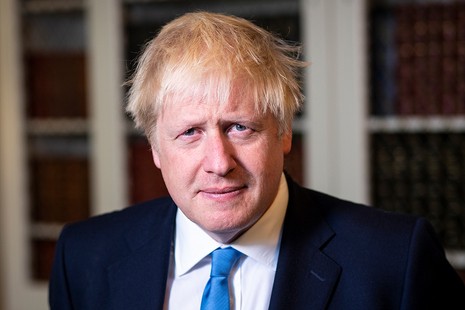By Ben Kerrigan-
Boris Johnson is to describe Ukraine’s resistance to the Russian invasion as the country’s “finest hour” when he addresses its parliament later.
Speaking virtually to MPs on Tuesday, the prime minister also set out details of £300m in extra military support.
Downing Street said it would include electronic warfare equipment, a counter-battery radar system, GPS jammers and night-vision devices.
The prime minister’s speech is expected to echo the words of Prime Minister Winston Churchill, Britain’s most revered former prime minister .
The prime minister is expected to say that the UK Parliament met throughout World War Two, just as Ukraine’s Verkhovna Rada has done through the war with Russia, and the British people showed “such unity and resolve that we remember our time of greatest peril as our finest hour”.
“This is Ukraine’s finest hour, an epic chapter in your national story that will be remembered and recounted for generations to come,” he will say.
“Your children and grandchildren will say that Ukrainians taught the world that the brute force of an aggressor counts for nothing against the moral force of a people determined to be free.”
In an interview with ITV’s Good Morning Britain, Mr Johnson said the UK was leading the world in helping Ukraine to “protect themselves”.
He said: “What the UK is doing – and has done since the crisis began – is lead the world in helping the Ukrainians protect themselves against barbaric aggression by Vladimir Putin. That’s all we’re doing.
“We’re not saying we’re doing this in order to drive some geopolitical change or to have an outcome in Moscow..
“What we care about is Ukrainian people and their suffering, and it is totally unjustifiable to allow a free, sovereign, independent country, like Ukraine, just to be overwhelmed and obliterated as it might have been.”
The prime minister said it was important to “protect the system from those who might want to abuse it”.
A total of 86,000 visas have been issued, but only 27,000 refugees have arrived, Mr Johnson said. He said the UK could have reacted faster. The latest tranche of military support includes radar systems designed to detect artillery projectiles and missiles and then locate the positions of the weapons that fired them.
Last week, 8,000 British army troops were sent to Ukraine to take part in exercises across eastern Europe to combat Russian aggression in one of the largest deployments since the cold war.
Dozens of tanks will be deployed to countries ranging from Finland to North Macedonia this summer, and joining them will be tens of thousands of troops from Nato and the Joint Expeditionary Force alliance, which includes Finland and Sweden.
The Ministry of Defence said the action had been long planned and subsequently enhanced in response to Russia’s invasion of Ukraine in late February.
The British government is also supplying heavy lift aerial drones, which can carry supplies to Ukrainian forces that have become isolated.
Downing Street said it would send more than a dozen new specialised Toyota Land Cruisers to protect civilian officials in eastern Ukraine, where Russian forces are now concentrated.
The vehicles, which were requested by the Ukrainian government, could also be used to evacuate civilians from the front line.
It comes after ministers said last week that they would soon be able to supply Ukraine with long-range Brimstone missiles, as well as sending Stormer armoured vehicles to support the country’s air defence.
Labour leader Sir Keir Starmer told BBC Radio 4’s Today programme the party supported sending military aid to Ukraine, but he called for the government to do more on sanctions and to process refugees “much more quickly”.
“I think the in-principle position of all political parties that we stand up for Ukraine, stand with Ukraine, stand against Russian aggression is very important,” he said.
Liberal Democrat foreign affairs spokeswoman Layla Moran said it was the right decision but “wrong timing” to send additional weapons to Ukraine, saying it was desperately needed a week ago.
She questioned whether the prime minister had delayed the announcement ahead of local elections, a move she said was “deeply cynical”.




